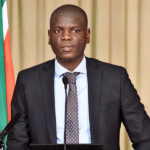A rising trend of Zambian government officials seeking medical treatment overseas has ignited public outrage, drawing sharp criticism from citizens and health advocates who see the practice as emblematic of deep inequality and neglect within the country’s ailing healthcare system.
The contrast is stark: while political leaders routinely travel to countries such as South Africa and India for treatment, millions of ordinary Zambians are left to contend with under-resourced hospitals, chronic drug shortages, and a healthcare workforce stretched to its limits.
“When our leaders fall ill, they immediately fly to South Africa or India for treatment, yet they expect nurses and doctors to work miracles in our understaffed, underfunded hospitals. This hypocrisy must end,” said concerned citizen Alexander Vomo, echoing a sentiment shared widely across the nation.
Zambia’s healthcare crisis is no secret. In hospitals across the country, women give birth in overcrowded maternity wards with limited equipment, cancer patients go without chemotherapy for months, and individuals suffering from kidney failure are often denied dialysis due to broken machines or lack of supplies. Despite these dire conditions, public records show millions of kwacha being spent annually on medical evacuations for high-ranking officials.
“This isn’t just about health – it’s about justice,” Vomo added. “The same politicians who cut ribbons at new hospital wings won’t trust those same hospitals with their lives. What does that tell us about their real commitment to healthcare reform?”
Healthcare professionals, too, have raised alarm. Dr. Sarah Mwewa, a physician at the University Teaching Hospital in Lusaka, spoke candidly about the everyday struggles: “We regularly lose patients to conditions that are treatable elsewhere. Our leaders know this reality yet choose to escape it rather than fix it.”
While the Ministry of Health argues that some treatments require specialized care only available abroad, critics point out that such referrals rarely benefit the average citizen. Calls are growing for greater transparency in how much public money is spent on overseas medical travel and for stricter accountability on healthcare investment priorities.
Advocacy groups are now demanding the publication of all medical evacuation expenditures, arguing that redirecting even a portion of these funds into local infrastructure and equipment could significantly improve healthcare outcomes.
As public pressure mounts, activists and concerned citizens are pushing for legislation that would require public officials to seek treatment locally unless a procedure is genuinely unavailable in Zambia. “We need leaders who believe in our healthcare system enough to use it themselves,” said Vomo. “Until then, these medical evacuations will stand as painful symbols of a broken social contract.”
With the next election cycle on the horizon, healthcare equity is emerging as a key political issue. Opposition parties have already begun pledging reforms aimed at closing the gap between privileged officials and struggling citizens.
The debate is no longer just about medicine—it’s about trust, justice, and the kind of future Zambians want for their country.






